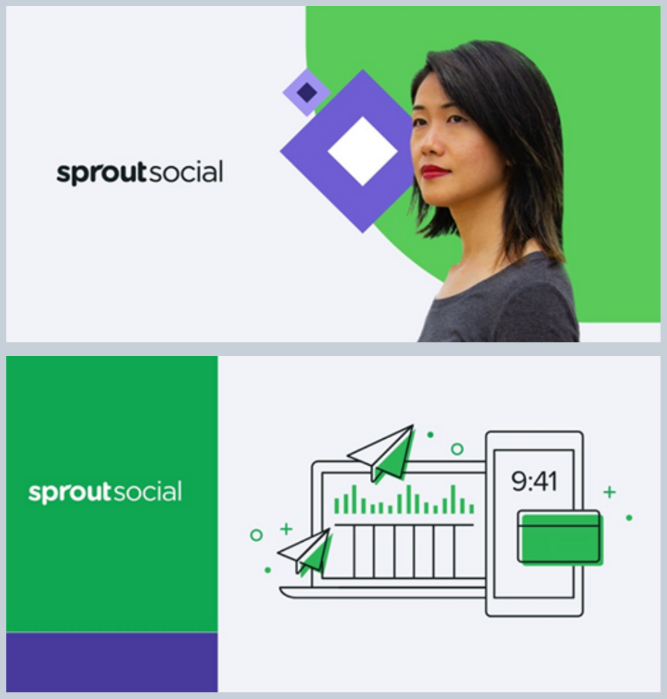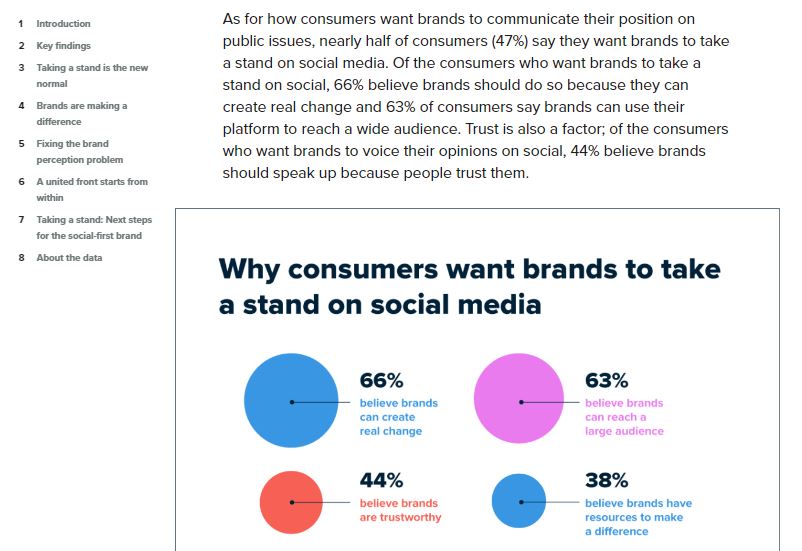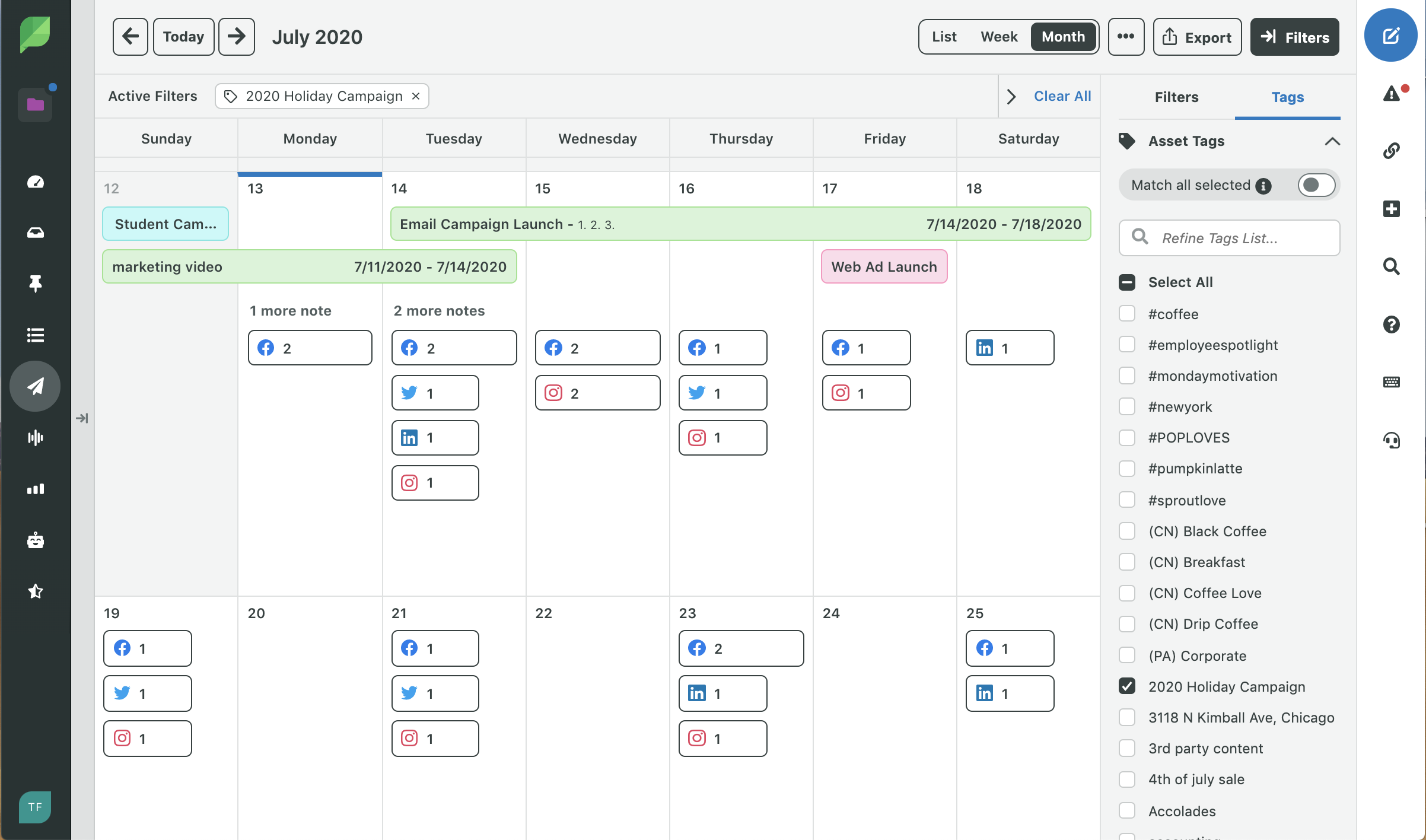Navigating call-out culture: What to do when your brand is in the hot seat
Consumers play a major role in shaping the public perception of brands, influencing their actions and holding them accountable—and it’s a double-edged sword for brands. On the one hand, a vocal audience can help brands shape their offerings and content. On the other hand, a brand misstep can be costly.
Over the last several years, call-out culture has become a pervasive part of social media. Honestly, it’s hard to think the last time there wasn’t a trending hashtag to boycott a brand or public figure.
In 2020, we’ve seen boycotts in response to brands voicing public support for social justice organizations like Black Lives Matter. Conversely, we’ve seen brands get called out for not being vocal enough in the fight for social justice. Brands with out-of-touch ads risk being “cancelled” and even seemingly benign campaigns can trigger waves of criticism.
Take Mr. Peanut, for example. The 104-year-old anthropomorphic legume met its fiery death in an advertisement ahead of the brand’s Super Bowl LIV spot. But the proximity of the ad’s release to Kobe Bryant’s death left a bad taste in people’s mouths, forcing Planters to apologize and pause all campaign promotions. Just over seven months later, Peanut Jr., the evolved version of Baby Nut who was born from the ashes of Mr. Peanut, celebrated it’s 21st birthday, to the shock and confusion of consumers on social. While some fans “shellebrated” the event, some (like me) wished the adorable Baby Nut didn’t age so quickly. Others were so salty that Planters kept pushing the Peanut Jr. storyline even after the initial backlash, that their calls to #BlockMrPeanut began trending.
https://twitter.com/slayerofstrange/status/1295971400453324800
Mr. Peanut and its parent company, Kraft-Heinz, will emerge unscathed following this rather confusing ad campaign, but other brands that don’t generate billions of dollars in yearly revenue like Kraft-Heinz might be so lucky.
No brand is immune to call-out culture and social media managers may feel part of their job is navigating land mines just waiting to explode. The permanency of what’s said or shared on the internet means there are no take-backs in this day and age. But brands can recover and regain consumer trust. If you find yourself defending your brand after being called out, incorporate the following steps into your social media crisis plan and get back on the road to redemption.
Be proactive: Move quickly and listen closely to your audience’s reaction
When your brand has been called out, being proactive is essential. Even a single, seemingly small or isolated issue can turn into a flurry of memes, Retweets, comments or a trending hashtag, so it’s important to move quickly and respond ASAP.
Social media managers may be able to address some comments on their own. However, depending on the nature and scale of the issue that’s being called out, you’ll need to involve your public relations team, your boss and your legal team.
Let them know what your audience is saying. Are they demanding action? What are they most concerned or upset about? Consider building a social listening topic centered around the issue at hand to measure sentiment, track the scope of the conversations and provide further insights for your leadership. Listening can ultimately help you shape a public response that directly addresses your audience’s feedback.
Be authentic: Collaborate with your team to craft a humble, human response
If a brand ignores complaints on social, some consumers will try contacting them on another channel—but 35% of consumers will boycott a brand altogether. But a poor response can actually be more damaging than no response at all and increases the chance of consumers boycotting by 43%.
There’s nothing worse than a passive stance, vague language or a “fauxpology.” Suppose a food brand is taking heat for consumers getting sick after eating their products. If that brand leads with “We only source the freshest ingredients and take food safety seriously,” you feel the “but” coming to deflect blame.
Also if your apology includes the word ‘but’ https://t.co/Rhs9uaTv7m
— X (@throwaway__000) August 23, 2020














